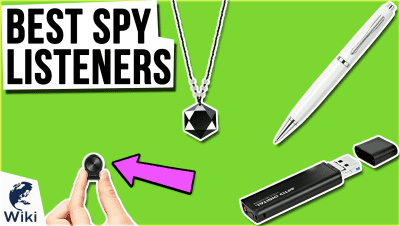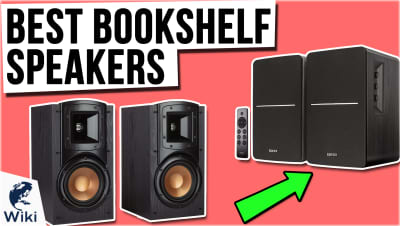The Unofficial FortunePandas Wiki
A decentralized application backed up by the Ethereum blockchain, FortunePandas incorporates both ERC-721 and ERC-20 tokens, and gives players the chance to earn Ether in a variety of ways. We'll go over how the game works and what sets it apart from similar dapps. If you're just getting started in the crypto world, try this guide to Bitcoin and Ethereum. This video was made with Ezvid Wikimaker.
What Is The Difference Between PandaEarth and FortunePandas?
Though they have similar names and both involve cute pandas, they are quite different games. PandaEarth is a breeding game, similar to CryptoKitties, where players make new pandas. FortunePanda does not have breeding, maintaining the rarity of its unique tokens. PandaEarth has more of a connection to real-life pandas and conservation efforts, but both are games. PandaEarth's pandas can go up in value in the same way as other crypto collectibles like CryptoCountries or Factbar, whereas FortunePanda has a drawing system by which users can win Ether.
The Story of FortunePandas
How Does FortunePandas Make Money?
According to the site's FAQ page, they will initially raise funds through the sale of pandas. After that, the developers will take 1% of the bonuses won by users. This is actually a fairly low figure in the world of dapps, as some charge 10% or more off the top of every transaction. Because developing things like mobile applications is not cheap, the game may have to introduce more features down the road in order to maintain a profit, but if the drawings are successful enough, 1% might generate a profit.
FortunePandas Links
- FortunePandas Website
- White Paper
- Medium
- Discord
- Telegram
- FortunePandas on DappRadar
In Depth
FortunePandas is a decentralized application on the Ethereum blockchain where players can buy and feed pandas in the hopes of earning Ether. Though not the first panda-based dapp, FortunePandas entices players with a lottery system and many ways to potentially earn a profit through both ERC721 and ERC20 tokens, and the ability to participate without making a large initial purchase.
To explain how FortunePandas works, let's first go over what ERC721 and ERC20 are, and how they can earn you Ether in the game. Most people are familiar with Bitcoin and Ethereum, cryptocurrencies that rely on blockchain technology. By using a decentralized ledger, users can verify transactions without the need for a central authority. Ethereum's blockchain is notable because it allows for the creation of decentralized applications, or dapps, that use smart contracts to allow for the trading of alternative assets on Ethereum's blockchain.
Beyond Bitcoin and Ether, there are many different types of crypto coins available. Often companies will issue an "I.C.O.," where they sell tokens that represent a stake in their company, or use those tokens as currency to participate in that company's business. You can use Ether to buy and sell these tokens. With so many assets using the blockchain, a standard was developed to regulate them, known as ERC20.
Beyond Bitcoin and Ether, there are many different types of crypto coins available.
When you make a transaction on the Ethereum network, no person is verifying your payment. Instead, it goes through a smart contract for the asset that you're buying or selling. ERC20 is a set of six functions for these smart contracts to ensure integration with the blockchain, and exchanges like ForkDelta allow for the trading of ERC20 tokens among users from all over the world.
ERC20 tokens are like Bitcoin and Ether in that they are fungible, meaning all coins of a certain currency are the same. If you have two Bitcoins, and you plan to sell one, it doesn't matter which one you sell because they are worth the same amount. You can also deal in fractions of a coin in the same way you can with dollars and cents. But some assets are unique, or non-fungible. That's where ERC721 comes in.
ERC721 is a standard for smart contracts dealing in digital assets that are not all the same. One popular example is Factbar, online representations of facts that are researched and verified. If you own a Factbar, you are the only person who owns it at that time, and every Factbar has its own unique value. Highly-desirable Factbars are therefore very valuable because they are rare.
Highly-desirable Factbars are therefore very valuable because they are rare.
These unique digital assets are known as crypto collectibles. The most highly-publicized collectible was CryptoKitties, where digital cats can be bred with one another to produce new kitties. Millions of dollars worth of Ether has been exchanged among players who want to buy or breed with kitties that have rare traits. There are collectible dogs, robots, and all sorts of other items sold on the blockchain.
There are a lot of games on the Ethereum blockchain have have been accused of being pyramid schemes, where those who get in early make a profit, and those who get in late make nothing. FortunePandas is an attempt to solve that problem by creating a sustainable game that doesn't just benefit the first few people in. The way they do that is by letting users participate in their lottery system regardless of whether they've purchased tokens.
There are a maximum of 2,100 pandas that will be released by the game, which are sold by auction. If you purchase one, you will be a Panda Master, and own one of these ERC721 tokens. If you aren't a Panda Master, you can still play the game as a Panda Keeper. You can use Ether to buy bundles of bamboo, then feed any of the pandas with it. When the panda is full, it will initiate a "Fed full lucky draw."
If you aren't a Panda Master, you can still play the game as a Panda Keeper.
The prizes for each draw are divided among several people. The Jackpot winner, chosen among any of those who fed the panda, gets 60%. 10% will also go out as a consolation prize to the others who fed that panda. Since there are a lot of pandas to feed, there will be many drawings, and you're basically purchasing tickets to these raffles.
The Panda Master of the panda that gave out the draw prize will get 20% of the Ether spent on it. This is why people want to own these pandas. However, because they are expensive, many might not want to spend the money, so the Panda Keeper system allows anyone to take part at a limited level. If a panda isn't sold in the presale auction, it will go away, making these tokens rare and valuable because they pay dividends.
The game also has an ERC20 token called FPC. Holders of these tokens receive 10% of every drawing, so they could also be a source of profit. Because they are fungible, they can be more easily traded. Players can develop their own strategies for which type of assets they want to hold to potentially earn Ether.
Players can develop their own strategies for which type of assets they want to hold to potentially earn Ether.
Though FortunePandas is still in its early stages, it manages to be a complex game with few rules. And because there are non-fungible panda tokens, fungible FPC tokens, and the Panda Keeper feeding system, players can get involved at any time, with multiple ways to play. We'll have to wait and see if this is truly the sustainable game the blockchain has been looking for.
















